#most of my friend group is south asian but we have a south american and a couple of europeans +3 east asians too
Text
found out a close friend is actually racist and homophobic that's crazy 😓😓
#kal rambles#shes korean#we go to an intl skl#most of my friend group is south asian but we have a south american and a couple of europeans +3 east asians too#she apparently thinks the indian kids are gross and smell weird and are fat !!!#and she only hangs out w us so she doesnt look lonely 👶#apparently im one of they few people she actually likes (because im not “ugly” (aka im skinny!) like the other kids and mask my accent...)#GIRL IS INSANE#she also thinks we're weird for being queer ☠️☠️
5 notes
·
View notes
Note
AITA for being paranoid about US Border Security?
🪤 <- for searching later
Background info: I live in Canada, (relatively) close to the US border. Because of this, when shopping online it can be cheaper to have orders shipped to the nearest American town and then drive down yourself to pick them up. I hadn't done this myself but it's pretty normal to do around here.
This happened at the end of this summer, so the situation is fully over but my (white) friends immediately adjacent to this situation have said that I was basically the only asshole here and I feel that I am, at least, only one of the assholes. I want people's genuine opinions however. I have since stopped talking to this entire group of people, who I'd previously been friends with for 4-5 years, over this issue and a couple others.
My friend (20s, white) had ordered a package to [nearest American town], and because they don't have a car, they were looking for someone who could do a day trip to the states so they could pick it up. I (20s, white-passing, but from a mixed South Asian Muslim family, & I have very recognizably Muslim family names) offered to drive them down with my car, they agreed. We were going to split gas money, the date was set, everything was ready to go.
A few days prior to when we were going to go, my south asian parent reminded me that because I have muslim names, I need to be very careful when crossing the border, because the US Customs is well known for profiling muslims/arabs and pulling them aside for intensive screening. My parent also pointed out that, because my friend smokes weed basically every single day (legal in Canada), I would need to make sure that they were not carrying any weed with them when we went.
I was freaked out by this, and was not thinking super clearly in the moment because it was close to midnight and things my parent had mentioned about previous experiences going through Customs had scared me a lot.
I immediately texted my friend, saying that Customs would find weed on them if they swabbed them, and that it would be "a big problem." They replied that Customs doesn't swab for weed, and that they "failed to see any problem." I replied that Customs is allowed to go through your phone (people have been turned away at the border for admitting to having used cannabis before, but if you tell Customs that you've never smoked weed and they find evidence to the contrary they can ban you from entering the country for lying to border personnel.)
I linked them to an unofficial site that went into detail about what US Customs agents can do if you have weed on you or admit to having smoked previously. My vague intent at this point was for us to get everything in order so that none of the bags/jackets/etc we were taking could possibly have had any weed crumbs/dead old vapes/edible packaging in them , but I didn't get a chance to say this because they immediately replied that even if Customs tested them and found weed in their system, that they wouldn't care because it's legal in Canada. I said that Customs very much would care, and they said that I was insulting them and accusing them of having a criminal record. At this point they sent a further ~10 upset/angry texts in a row, which I didn't open or reply to because I was really upset at this point and needed a minute.
At this point (around midnight), they phoned me, I picked it up and they immediately(!) started yelling at me and saying I was a piece of shit etc etc. I told them they sounded dysregulated and should take a minute to compose themself (I phrased what I said in an aggravating therapy-speak way, bc I had been watching vids about cptsd immediately before they phoned me, but I was extremely freaked out, as I think most people would be when their friend is suddenly yelling at them, and it was the first thing that came to mind). This just made them yell louder, so I told them I refused to let people speak to me that way, said goodnight, they said goodnight, we hung up, and I blocked their calls and texts so they couldn't continue berating me.
After this, I realized that I'd completely neglected to mention that the reason I was particularly scared was because of US Customs' Islamophobic profiling, but I had gone into the interaction assuming (incorrectly) that they already knew implicitly that that was going to be an issue, because we'd known each other for 5 years and I've definitely talked (not recently) about how going thru US Customs is always a pain in the ass because my whole family gets profiled and taken for extra questioning, so right before I went to sleep I briefly unblocked them and sent a text saying that the reason I was so paranoid was because of the extra questioning I was already expecting to encounter at the border, but that it was now irrelevant anyway because I refused to be in a car with someone who was totally fine treating me this way.
I've since stopped talking to this person and, by association, my (white) friendgroup because they sided with them completely. It was a long time coming for other additional reasons I can't get into though.
TL;DR
Planning trip from Canada to US in my car with stoner friend, realized a few days before trip that US Customs can arbitrarily fuck your shit up if they find evidence of weed on you. Got scared and tried to tell stoner friend that it would be a big problem if they had weed on them, they flipped their shit and yelled at me over the phone about it, I blocked them (functionally cancelling the trip).
I believe I was accusatory in a bad way, and that I should have communicated better, but ultimately that my fear had a 100% legitimate basis and should not have been completely and totally dismissed by everyone around me, even though I was too extreme in my paranoia
(They were able to get another ride and pick the package up later)
What are these acronyms?
117 notes
·
View notes
Text
Let's talk about Desi representation again!!
I don't talk about this stuff often but when I do, I have some strong ass opinions
and yes I'm gonna be talking about none other than Pavitr Prabhakar at the end cuz he's just special to me <3
Hollywood is lagging behind on Desi representation
You'd think one of the biggest film industries in the world would be able to represent us properly, considering the fact that we make up the largest group of South-Asian Americans and the second largest group of Asian-Americans in the US, but instead-
Western Television forces Indians to conform to harmful stereotypes
Some of the most popular Desi characters on screen are Raj Koothrappali from the Big Bang Theory, Devi Vishwakumar from Never Have I Ever and Kelly Kapoor from the Office.
Indian men are almost always portrayed as robotics engineers and computer whizzes, but with terrible social intellect, making them seem like awkward nerds.
Indian women are almost always portrayed as "whitewashed", or wanting to appear more western, with zero understanding of their own culture or language along with an unrelenting need for attention from white friends/colleagues.
These are both based on stereotypes that Indian culture is "toxic" and "too traditional" and that Indians are only interested in studies.
Most Desi characters in western media have stories that are solely based around their ethnicity and/or racial stereotypes.
British television actually showcases a lot more representation than Hollywood does
I was watching Polite Society, a movie starring two Pakistani characters as the main leads, and there was a dance scene where both the leads are wearing traditional desi attire. My mom turned over, looked at me, and asked, "Is this Hollywood? It can't be."
And she was right. It's a British movie with British-Pakistani actors.
The reason she didn't believe that it could've been Hollywood was because the dresses the two leads were wearing were traditional and beautiful and the song playing in the background was authentic Hindi music, not some random westernized DJ version of it.
A Hollywood movie would've never dressed up their Desi actors in actually flattering attire (*cough cough the Patel twins from Harry Potter) or have used real, popular Desi music in the background.
You see my point?
It is so uncommon to see well-thought-out Desi representation in TV nowadays, where to see real diversity we have to watch movies made by the same country that colonized us.
Ironic.
British movies/shows with desi leads have far better South Asian representation than anything I've seen in Hollywood recently.
The Hollywood movies starring Indian leads, like Slumdog Millionaire or Bend it like Beckham were filmed in the UK, and because they were filmed in the UK, they had fantastic South Asian representation.
Not only does Hollywood refuse to create shows and movies about real problems that South Asians face, but they also don't cast South Asian actors in good roles.
When's the last time you saw a South Asian actor playing a character that wasn't a walking stereotype? When's the last time you saw a South Asian actor playing a character that was a genuine part of the story rather than just comedic relief or a random smart kid in the classroom?
Not often, right?
Me, personally, I didn't grow up with a lot of South Asian characters or actors in shows/movies that I watched. In fact, every time someone even close to my skin color showed up on TV, I was on the edge of my seat because it was just so rare to see it.
This is why representation matters.
You've heard about all the young girls with braids being so excited when the new little mermaid with Halle Bailey came out. Well, us desi kids wanted that too.
I wanted to see a Telugu speaking girl with wavy hair and dark skin who would wear traditional clothing to Desi get-togethers and parties, go to the temple with her family, eat vegetarian Indian meals, etc...
I wanted to see a character who was a representation of me and my experiences as an Indian-American. I wanted to see a character that was at least a representation of Indians or just South Asians in general.
Instead, we were given characters that ridiculed their own culture, were extreme stereotypes and furthered the existence of casual racism in western society today. So many Desi kids experience small acts of racism on a daily basis because people have been so desensitized to the existence of these stereotypes.
Telling South Asians that their culture is a joke and feeding non-asian children media which pokes fun at other cultures is harmful, not only to us South Asians but also communities that could end up being targeted next.
Pavitr Prabhakar; Representation Matters
If you've been following me or if we're mutuals, you probably know I have a tiny obsession with Pavitr Prabhakar. But why?
Because of all the reasons I just listed.
There are few South Asian characters us Desis can look up to these days, and Pavitr Prabhakar is one of the maybe two or three characters who have great writing, magnificent representation, and overall a fun vibe.
He's likable, funny, smart and best of all, unapologetically Desi.
He's just like all the other side characters, with a little bit of his own culture mixed in. He's not being shoved down our throats to further an agenda about fake diversity, he's not a walking stereotype and best of all, he was designed by Indian creators.
He's refreshing and exciting to follow in a world full of a demand for half-hearted representations and the people who created him were obviously putting their hearts and souls into it.
He's awoken a love for Indian culture amongst, not only Desi children themselves but also among westerners who, prior to this, had thought of India as a "3rd world" country, because that's the agenda that Hollywood pushes onto many South Asian countries today.
WE LOVE PAVITR PRABHAKAR!!
This was kinda all over the place but I just had to get this off my chest <3
Sources:
https://www.washingtonpost.com/politics/2021/06/10/discrimination-against-indian-americans-happens-more-than-you-might-think/
#for all the brown kids that never got to see a character that looked like them growing up#desi representation#desi writers#desiblr#desi tumblr#desi tag#desi culture#indian representation#pavitr#pavitr prabhakar#atsv pavitr#spiderverse pavitr#pavitr my beloved#astv#across the spider verse#across the spiderverse#spiderman atsv#pavitr Prabhakar
132 notes
·
View notes
Text
i really do laugh seeing blue lives matter stickers on cars next to a harry potter symbol like it's peak white™️millennial in the south. snarky disney meme about baby yoda being in board? check! american flag with a blue stripe? check! deathly hallows symbol or a quote saying lumos! check! congrats you're just as racist and homophobic as your mee maw and paw paw! the bitch apples don't fall far from the tree after all!
"the younger generations will end racism/homophobia/etc!" you motherfuckers can't even let a fucking book series go when the author straight up hates transgender people in the open. but you're the vote everyone worries about every single election??? 😂😂😂😂😂 y'all swear UP and DOWN you're NOT LIKE THEM OTHER WHITE PEOPLE™️ but you are!
boo hoo that was my childhood! hello!!! it was a whole lot of our childhoods and yet here we are in 2023 with millions of people saying hey! continuing to support this woman hurts so many groups of minorities cut that shit out! and i swear y'all buy another legacy game or hardback book with a new cover saying it's not a big deal cos you're sad and it cheers you up etc etc etc
then have the nerve to reblog posts about police brutality and acts of violence against trans and asian and black people saying you're spreading the word to be better.
but you're not. it's empty reblogs empty gestures and i'm fucking tired.
fuck you if you still support harry potter or anything with it in 2023
fuck you. "oh it's my childhood" tired asses.
trans kids don't make it outta teen hood most of the time due to suicide.
black and asian kids are beat the fuck up and killed by police for just being none white. hate crimes are up so bad. and then i go out and i see tons of harry potter shit like it's the fucking 90s. harry potter and friends. and y'all saying everyone is hurting entertainment now with "forced diversity"
y'all are not slick. you're fucking racist through and through. so many of y'all think because you don't actively say slurs or hang nooses or burn rainbow flags that you're not like the other homophobic racist people. but you are like them.
you're fucking pathetic on several levels and basic at that.
you continue to choose a book series over actual lives. you're beyond fucking disgusting.
and shout out to the fuckers who "love" kpop but tell their fav korean artist to speak english. i really do wish the devil would call all you sorry ass bitches back to hell where you belong. fuck you.
oh and the anti semitism that jumps out all the fucking time??? you think i don't continue to see this??!!!! Y'ALL ARE SO FUCKING TRASHY LIKE I FUCKING HATE YOU!!!!!
Y'ALL REALLY ARE FUCKING NAZIS IN THE OPEN AND IT'S THE WILDEST FUCKING SHIT LIKE IT IS 2023 AND YOU'RE BUYING THAT TERF SHIT IN A FUCKING ECONOMICAL CRISIS????? MAKE IT MAKE SENSE YOU ABSOLUTE CUNTS!!!!
FUCK! HARRY! POTTER!!
🖕🏾🖕🏾🖕🏾🖕🏾🖕🏾🖕🏾
195 notes
·
View notes
Text
"home"
personal essay on ideas of home from a diaspora desi living in the U.S.
while reading “white spaces and brown traveling bodies: a project of re-working otherness” by roksana badruddoja, i began thinking of ideas of home, and what they mean to me. a portion of this paper, published in 2006, focuses on “home,” and what it means to various south asian women. the paper also discusses race and ethnicity within the context of the united states, and how these desi women are situated within it. i myself have done lots of thinking and writing on these subjects, but i have never fleshed out my ideas of “home.”
there are many unique struggles and situations that come with growing up in a diaspora. my parents are from india. i was born in ohio. i have lived in ohio my entire life. i have gone to india many times with my mother to visit her family. my father’s family moved to america when he was eight years old, and they still live here.
throughout my life, i have constantly been asked, “where are you from?”
people are curious. they see me, they see that i am not white, but i am also not black. in america, race is constructed on a black-white binary. those of us who exist outside of the binary have a difficult time situating ourselves within this country. others have a difficult time figuring out where to place us as well, hence the age old question, where are you from?
this question seems so innocent, but it is loaded with racism, otherness, and the idea that we do not belong here.
when i am in a good mood, i will say that i was born in ohio, but my parents are from india. if i am not, then i simply say “ohio,” and hope that they will leave it. but sometimes, i am asked, “but where are you really from?”
what they want to know is my ethnicity, but they don’t have a way to ask that question. in these situations, i usually turn the question back around, or i flat-out say that this is ridiculous.
perhaps this is why the idea of “home” has always confused me. from a young age, the white children and adults around me insisted that i could not be american like them, that i was something else, and i did not belong here. eventually, i stopped saying i was american. it is not a label i feel a connection to, and apparently i do not get to decide what i am, so i stopped using it to appease those around me.
as a child, i mainly listened to bollywood, watched indian films, and hung out with my local indian community outside of school. i went to a predominantly white private school, and i did not connect very well with the children there. my mother also did not connect with any of the parents, so i rarely spent time with people at school outside of school. i did not participate in american culture very much, and did not consume american media outside of disney channel and cartoons. people made fun of me for this, or they acted as though i had committed some grave sin by not listening to taylor swift (i still wouldn’t listen to her if you paid me a million dollars). to this day, there are still many iconic pieces of american media that i have not consumed, and it still stings when people go “really? you haven’t seen that?”
my local indian community didn’t help with this. the majority of the kids i spent time with primarily consumed american media, and had very little interest in film and music of india.
i’m also neurodivergent, and i ended up being transgender and queer as well. as i got older, i began to drift from the indian community. i no longer keep up with any of the children i grew up with. i fear that i am too different now. most of them are pursuing careers as doctors and engineers, and i’m struggling to finish college and get my humanities degree.
alienation was something i felt everywhere: at school, with my family, and in my indian community. i never had a solid group of friends, i never had “my people,” and i could not find my way in the world i inhabited. as an adult who moved out of his parents’ house, it has become easier, but not by much.
when i went to india in december, and informed my partner that i had arrived at my family’s house, she said “welcome home.”
what is “home?” where is “home?” is it a tangible place that i can exist in? is it a person? or more of an abstract concept?
in india, perhaps i do feel more at “home.” i am surrounded by a family that loves me, despite not quite understanding me and my ways (they still don’t know i’m not cisgendered anymore, and i am too afraid to tell them). i am surrounded by people who look like me. they aren’t disgusted with me for using my hands to eat. they do not question my love for indian film and music– if anything, they are delighted that i care. they do not ask me, “where are you from?”
india feels good. but india is not home. there are so many things i love about india, but it is not home, it is a vacation. it is a trip i make with my mother, because my grandmother was bound to the house for the last 20 years of her life, and we used to go to see her. in india, i do not have a schedule, i do not have responsibilities, there is nothing for me to do there but relax, read books, and play games.
i get bored after a while. i get restless. i become depressed and anxious. there are parts of myself that i cannot share with my family. i cannot go anywhere by myself in india. i do not know enough hindi, telugu, or marathi to get around. if i speak english, with my strange midwest-american accent, it will give me away. i do my best to keep my mouth shut when we are going around the markets and sari shops.
these days, i see many desis online commenting on the way diaspora desis live. they claim that we are not one of them. we stumble over our words trying to speak our parents’ languages. we don’t always enjoy foods that are traditional in our cultures. we dress differently. we participate in the culture of where we grew up, rather than the culture of south asia. and so, desis from south asia like to say that we are “whitewashed,” that we have forgotten our roots, that this is a decision that we made. it’s not like there is pressure to follow the hegemonic culture and internalize it. it’s not like there are consequences when you don’t follow it. no, no one ever made fun of me for bringing indian food to school, or wearing bindis, or bangles, or my traditional clothing.
it’s not like i, a diaspora desi living in america, have ever had any struggles at all regarding my identity as the child of immigrants and my place in american society.
we did not ask to be born here. we did not ask to be born at all.
america is not home, india is not home, and the shitty townhouse i moved into with my ex is not home, either. what is home? where is it?
will i ever find it?
#powergayser moment#writing#desi#desi diaspora#indian diaspora#desiblr#originally written on 6/17/2024
5 notes
·
View notes
Text
*** This ask has been edited and condensed for clarity and context.
Anonymous asked: I have 3 Asian characters in the main friend group of my story. One is mixed race (Indian and Dominican), one is Chinese (comes from a Cantonese-speaking family), and the last one is a Japanese critique on Tumblr coquettes and the effects of of toxic internet communities on teenage girls. I'm kind of concerned about my South Asian character coming from a low income household, but I'm worried that my Japanese character might embody some traits that fit into stereotypes about Asian girls being rude and unhinged, especially because I explore a lot of complex and taboo subjects with her character. I do have sensitivity readers and was told (by an Asian person) that the character is a a breath of fresh air because she defies a lot of expectations placed on Japanese girls, but is there something else I should do as well? Could this be an offensive portrayal of a Japanese-American girl with a mental illness?
I'm not Japanese-American, so I am not the best person to tell you whether or not this could be an offensive portrayal of a Japanese-American person. What I can tell you is when it comes to writing about race-based and cultural-based experiences (like racism, diaspora, and being raised by immigrant parents), and exploring sensitive topics (like mental illness, addiction, sexuality, and violence) through a racial and/or cultural lens, if you are not yourself of that race or culture, you have to ask yourself whether you're the best person to tell these characters' stories.
We do need more diversity in fiction, and not only does that mean boosting "own voices" writers, it means making an effort to create casts of characters that are reflective of the world around us. However, there's a big difference between including diverse characters in your cast versus presuming to explore the experiences of race, culture, ability, and identity from the outside, having never had that experience yourself.
And yes, as writers, a big part of what we do is write about things we haven't or can't experience. Andy Weir has never been to Mars. Stephenie Meyer has never been a vampire. Leigh Bardugo wasn't born able to manipulate the elements. But, what all of these things have in common is they're things either no one can experience or anyone could experience. They're not something you could only experience only based on your race, culture, ability, or identity.
There are those who deeply feel you should not write about racial, cultural, ability-based, or identity-based experiences you have not yourself experienced, even if you do a lot of research and use sensitivity readers. And there are those who deeply feel all writers should be able to write about anything they want, no matter what. I can't tell you where you should fall in that, but I can offer advice, which is this: if you choose to portray racial, cultural, ability-based, or identity-based experiences that you have not had and could not have because you're not of that race, culture, ability, or identity--even if you do a ton of research and use lots of sensitivity readers, you have to be prepared to be heavily criticized by people who don't feel you had the right to write about these things coming from outside the experience.
And most of all, if your gut instinct is telling you you're doing something potentially offensive and/or harmful, you absolutely are. Listen to your gut and reconsider why you're even writing this in the first place. Far too often, it's coming from a place of fetishism rather than a unique desire to tell a story that has yet to be told.
So, just some things to consider. At the very least, continue to do a ton of research and make sure to work with multiple professional sensitivity readers from the backgrounds you're choosing to portray.
•••••••••••••••••••••••••••••••••
I’ve been writing seriously for over 30 years and love to share what I’ve learned. Have a writing question? My inbox is always open!
Learn more about WQA
Visit my Master List of Top Posts
Go to ko-fi.com/wqa to buy me coffee or see my commissions
20 notes
·
View notes
Text
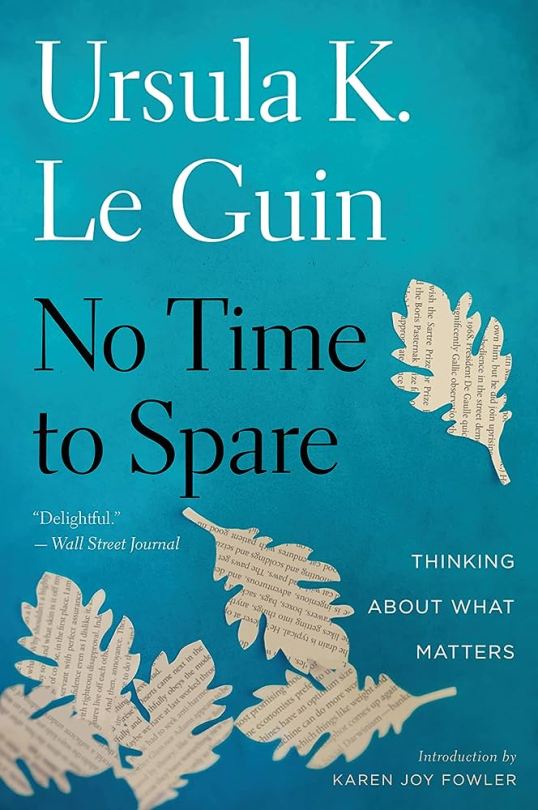
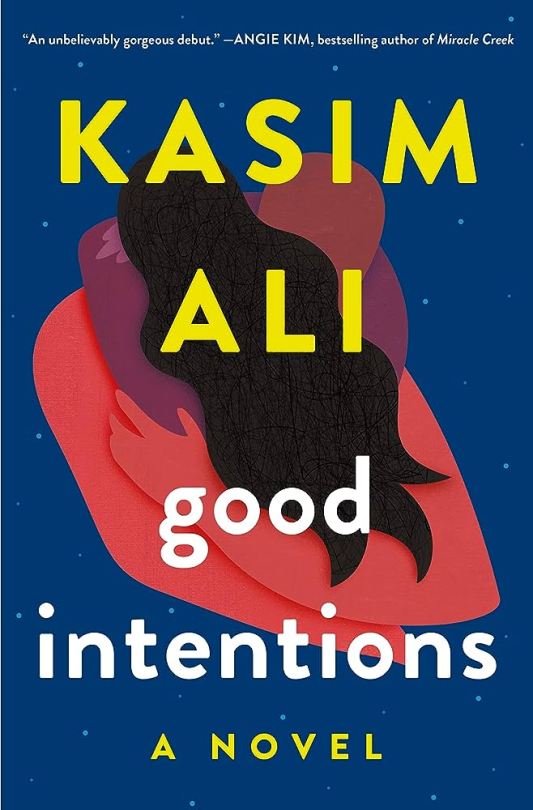
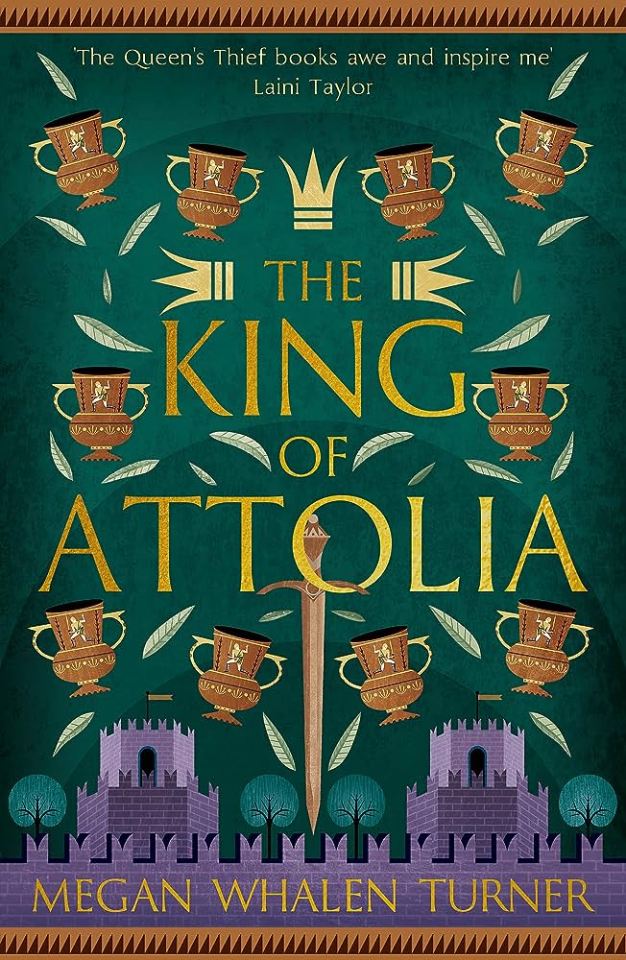




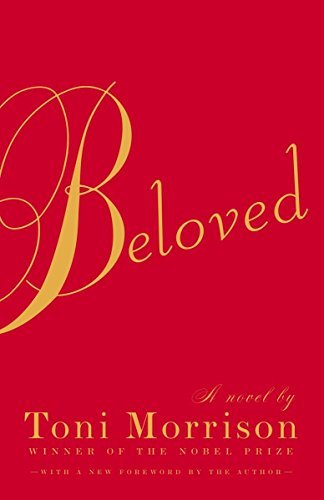

second tag meme and also from @ravenkinnie: book recs!
no time to spare / ursula le guin / i've been slowly trying to make my way through her essay collections and this is one i really love so far. i also read words are my matter but that one had some of her more questionable political stances so i enjoyed this one bc it was focused on more generic and personal topics
good intentions / kasim ali / i would honestly highly recommend this to south asians specifically bc i don't think i've seen any other book that holds south asian millennials accountable for their tendency to damn their parents to inflexibility from the outset and then fail to hold themselves accountable for never challenging traditional mindsets. this book specifically deals with anti-blackness within the south asian community and i think it does a fantastic job of it (please wait until the end bc it does end as it deserves to end but for a moment you will get worried towards the middle that it won't go that way lol. trust me)
the king of attolia / megan whalen turner / obv i would rec the queen's thief series in general but this is by and large my favorite of the whole series (well. bar the sixth book which closely ties with it) and much as i am sure everyone loved this series the most when it was from eugenides's perspective i cannot help but think that i never love eugenides more than when i read about him through the perspective of those who love him dearly
each little bird that sings / deborah wiles / this was a pretty formative book in my childhood esp wrt the concept of how children process death. it's actually part of a quartet of companion novels, each of which i love dearly and one of which is actually the inspiration for my current username, but i think this one is executed the best and it also happens to be the most well known installment, definitely for good reason
supreme inequality / adam cohen / i feel like if you're not necessarily into studying the law but want to gain a better, in-depth understanding of why we are where we are right now with american law this is a good book to read. it corrects a lot of misconceptions around the idea that the supreme court was ever consistently progressive (ie severe brevity and breakdown of the social welfare oriented burger era) and discusses the evolution of judicial interpretation of major topics over the course of the last several decades
the f team / rawah arja / this came as a rec in a melina marchetta newsletter and i'm so glad it did! it's a really fun and messy look into life as a lebanese-australian boy and what i think it does well is not shy away from culturally ingrained flaws, rather seek to dissect and understand them and highlight how crucial an emotionally mature and communication-dependent upbringing is for young muslim/arab boys. there are a few jokes here and there that caught the side eye from me bc they felt severely lacking in self-awareness but other than that i really enjoyed it
the piper's son / melina marchetta / my favorite marchetta novel forever and always, and the second installment in the inner west trilogy of companion novels, following saving francesca. what i really adore about this one is the interplay of grief between so many people and this guilt you have to overcome over the impact of the death of a loved one on your life. bc sometimes it utterly tears you apart and other times it brings you together and the emotions of that are so horribly complicated. i also simply adore the continued exploration of the main friend group and how as harsh as the girls are on tom they are so protective and dedicated, too, bc that's how they all are with each other. it's a book that constantly makes me ache
beloved / toni morrison / interestingly i find this book to be highly relevant considering the recent abortion fiasco in the american legal scene and its relation to abusive domestic situations but it's also one of the books i loved reading the most in undergrad particularly bc of its brutal exploration into how oppressed peoples are driven to self-inflicted violence as a last resort. can you blame a woman for killing her child when the only other option was damning that child to a life of slavery? it's a situation that has to be analyzed with so much empathy and compassion and that's exactly what morrison affords it
the secret garden / frances hodgson burnett / one of two other books i loved reading the most in undergrad (with the third one being north and south). i read this for a british literature class that i took at a time i was severely starting to doubt my degree again after having already gone through a really rough depressive period following jonghyun's death so it really opportunely entered my life. i remember reading the magic monologue towards the end and just crying and crying bc it felt so liberating and while the rest of my undergrad journey was not necessarily a total high i do think this helped comfort me a lot
tagging: @briarhips, @lateafternoonsunlight, @senorscotty, @dankovskaya & @infatuate !
16 notes
·
View notes
Text
Excerpt Repost from Subtle Asian Mental Health
My family is very warm and accepting, while remaining culturally Cantonese (and Canadian, and American) in a lot of ways. But my parents are also open-minded people, and even though they make mistakes, I think they are generally willing to listen to me even when I disagree with them, which I think has partially to do with their upbringing and spending a large part of their early years growing up without their parents' direct oversight.
I think something that is easy to forget is that immigration is an inherently traumatic experience. It's especially easy to buy into the model minority myth, and the implicit assumption that when abuse happens in Asian families, it is because of "culture." But I don't think that's it at all. Asian folks leave their home countries for many reasons - political change, war, economic downturn. Each situation is different. But for the most part, the common backdrop in many of our collective pan-Asian experiences is the intergenerational trauma of western imperialism, and it's hard to understate the deep psychological, economic, political, and social harm caused by generations of genocide, war, famine, and theft. Obviously, experiencing trauma isn't an excuse to treat your family like shit. But I think it is also more complicated than "Asian families are inherently less loving than white families," and I think a lot of that results from internalized racism and the trauma of constantly viewing ourselves from a white lens.
What is important is that white culture and Asian cultures do EXPRESS things differently. Neither is more predisposed to healthy or unhealthy family dynamics. But they may look DIFFERENT in how those versions appear. From my own experience with white friends and their families, I think white families that "appear" friendly and warm from the outside may have a lot of shit going on under the surface that an outsider might not see (religious trauma, domestic violence, infidelity, homophobia). White families also have a COMPLETELY different sense of money than a lot of Asian families, and while sometimes that can be a positive (independence), I also have seen it cut the other way (coldness and cutting children off). If you always view Asian families from a white individualist perspective, they will seem "bad," but a lot of it is just because of the lens of white individualism. There are a lot of toxic Asian families too, but we should think about what SPECIFICALLY is wrong about each one on a case-by-case basis, instead of being lazy and making sweeping racialized generalizations about ourselves that we have a "toxic culture" that is frankly untrue (and also compresses the wild diversity and variety among Asian cultures across East, Southeast, South, and Central Asia that are all very different from each other). White culture has plenty of patriarchy, homophobia, ageism, disrespect, domination, and abuse in it. Even if the "flavor" of abuse is different than many Asian cultures, it's still widely pervasive in white families.
I think what a lot of overseas 2nd+ gen Asians don't realize is that they are conflating "white families" with a Hollywood concept of what a happy white family looks like, and I don't think that this picture of a domestic white family actually has much basis in reality. No family or culture is perfect, and the nature of this group and this page predisposes us towards only hearing from the "bad" side. But I hope that we in this community can also celebrate the ways that Asian parents DO show love, and the ways that WE show love to ourselves and to the people we care about that are just as meaningful and valid.
#samh#subtle asian mental health#mental health#trauma#abuse#immigration#2nd gen#intergenerational trauma#love#parents#culture#hollywood#internalized racism#family#colonialism#post-colonialism#hong kong#cantonese#chinese#individualism#western culture#asian culture#asia#asian american
4 notes
·
View notes
Text
10 people can't even agree
The promotion of Racism, now it's own industry, has made for a very ugly society. If anyone discriminates against another person for their race, creed or color, they are harming the World. Any white, black, or person of color that discriminates, takes part in Racism and Hate. BLM and the Proud Boys are one and the same. They make money off of promoting Racism. Every black person I know said they don't support BLM, every white person I know wants nothing to do with the Proud Boys. Every good hearted Democrat that I know would prefer not to have BLM a Hate group in their party, every good Republican I know would prefer not to have the Proud Boys in their party.
Those two groups are fueling Hate between us all. I'd estimate that 87% to 93% of us are good people at heart. But the small groups seeding Hate in our society are driving good people to have bad thoughts. We need to either create a new party that promotes Tolerance and Kindness in society, or we need to remove those groups from our party system.
We're infected with a disease that has no part in society. If we don't remove the disease, then it will run amok and bring us crashing down. We're already at a point where we can see the decay all around us.
I myself do not understand racism. I've met black people I do not like, I've met white people that I do not care for, and there are Asian people and French people and South American people that I do not like. I've met many men and women who I do not get along with, but it's because of their attitude. I still love them as people here on Earth, but I avoid building relationships with people that spread Hate. It wasn't the country that they're from or the color of their skin that made me not fond of them, it was a poor attitude. I keep away from people who are aggressive. I prefer people who are kind and respectful of others. My very best friend is a black man, my wife is Jewish, and I have two special needs daughters. My previous coder and good friend is Asian, my new coder and good friend is Pakistani, my mobile team is from India. I cherish the relationship with every one of them. I care for them and love them all very deeply. I do not spread bad Karma or hateful words upon anyone that I may not get along with. I leave them to their own choices. It's mathematically impossible for us to all get along, but we can leave each other in Peace. That is the only avenue that we can pursue to create a better World.
Most people can't even get along with their own family members, and can't get 10 people in their own family to agree on something, yet they want to Hate people all around the world for not agreeing with their point of view. As I said before, I don't understand that kind of thinking. So we create our little bubble of Hope and Love, and we live one day at a time, caring for each other and working to make for happy times together. That's all you can do. Blessings to you and your family, we hope you can overcome your Hate for the World, and be Kind and Tolerant of others.
God bless the World
0 notes
Text
IF I HAD YOUR FACE (2020) BY FRANCES CHA - SPOILER-FILLED REVIEW
A couple months back I finished If I Had Your Face (2020) by Frances Cha. I was drawn in by the gorgeous magenta and yellow cover of a lovely Korean woman looking lost in thought. This review will discuss my thoughts on plot and characters and there WILL BE SPOILERS. For a Spoiler-Free Review click here.

Overall rating: 3.5 out of 5 stars
The story relates the lives of five young Korean women in Seoul who each have their own personal and family hardships. The main ladies we receive first-person narration from are Ara, a mute hairstylist with a tragic past and a K-pop obsession, Kyuri, a room salon worker who knows all the coolest plastic surgery and fashion trends, Miho, a Korean-American artist who made her way out of an orphanage, and Wonna, a newlywed facing the uncertainty of motherhood. While there are five main storylines we hear about, one of the women, Sujin, does not get any chapter narration and thus we can only discover her story via the observation of the other women in the group. An orphan who grew up with Miho, Sujin is saving up to be like her role-model, Kyuri, in hopes to be considered rich and beautiful by South Korean standards. I like that this story brings together friendship through hardship and fun as well as talking about economic strife and the harsh standards of beauty, marriage, and motherhood expected in their society as women struggling to balance modern and traditional values.
I do not know a whole lot about Asian culture, let alone South Korean culture, so some of the cultural standards seemed very strange to me. For instance, plastic surgery is not considered taboo/ high maintenance/ unnatural in South Korea as it is in many parts of the United States. Rather, it's encouraged as a way to compete for better opportunities in romance and the workplace. Due to this, I feel like I was able to relate to Miho the most because she is Korean-born but spent a few years in the United States as a young adult and is considered the "odd" one of the group due to her American customs and opinions on individuality (American belief) vs community (Asian belief). While I liked Miho a lot, some of her decisions made me CRINGE. The biggest Miho cringe moment for me was when she kissed Ruby's boyfriend, Hanbin, at a party and then started a relationship with him after Ruby completed suicide. I do love when she gets revenge on Hanbin for cheating on her with one of Kyuri's friends, but I wish we had actually seen the revenge go down instead of hearing it from the perspective of someone other than Miho. Also, her art sounds eerily pretty. It would be cool to see if this becomes a film.
My favorite character was Ara because I feel like she had a lot of spunk and I feel like she and I have similar interests and reactions to life's challenges. I used to be super obsessed with a few rock and pop bands from the ages of about 12 to 22 and the boys in the band were allllll I could think about. Also, she and I both dye our hair bright colors which is fun. Also, we were both "edgy" teens, but luckily for me I wasn't in a gang like Ara.
The most heart-breaking story for me was Wonna. After three miscarriages and her terribly abusive past with her grandmother, her anxiety about becoming a mother was gut-wrenching.
Kyuri and Sujin were ok, but I feel like their characters revolved so heavily around working in the salon room and getting plastic surgery that there was not a lot of other interesting things happening in their lives in my opinion. Reading their sections just made me kind of sad to be honest because they were so pretty on the outside but so sad and ashamed on the inside. I do feel really bad for Kyrui though because I do think she is a really good friend and daughter by always being there emotionally and financially. It was hard seeing her trapped in a horrible job situation that keeps her in debt, constantly intoxicated, and feeling lonely. It was sad when she fell in lust (she thought it was love but I'm saying lust because he didn't reciprocate the feelings toward her) with one of her clients. It must be really hard for a woman in the sex and escort industry to find a partner who respects and values her for more than her body. :( I am proud of her for leaving the salon in the end and starting her path as a career woman, even if it is in the plastic surgery office.
This book reminds me a lot of The Sisterhood of the Traveling Pants, which I have not read but I have seen both films. However, I think this story relates on a lot darker topics, such as body modification, physical-emotional-and mental abuse, working in the sex and escort industry, suicide, adultery, and alcoholism.
Would I read this book again?
Probably not because I think the story ended with a lot of my questions unanswered. Also, the backstories on most of the women are pretty depressing. However, I think it is a very interesting book and is worth the read, especially if you are interested in Korean culture.
#frances cha#if i had your face#korean#korean american#south korean#female author#asian art#asian literature#book review#spoilers#spoiler book review
1 note
·
View note
Text
[“When my daughter received her diagnosis, my unspeakable fear was that this would just connect me to a long, depressing history of female caregivers. Self-effacing, with no identity besides caring for their child, these women were then hated by their other children—and sometimes by the cared-for child themselves.
I had struggled my entire life to redefine gender roles. To live a life free of the heteronormative and sexist expectations that define and limit women. That relegate women to supporting, care-giving roles while the men get to be independent, swashbuckling achievers. To be carefree. I chose to have only one child, late in life, in order to minimize the impact of care on my independent, feminist life. And I chose a gender-nonconforming female partner who would be an equal caregiver, ensuring that despite my being the birth mother, we would share the minimal burdens of our needs-free child. Like Washington, I naively thought that I could individually solve the systemic problems of care by having an egalitarian marriage—queer gender-nonconforming edition. All that was missing in this needs-free fantasy was the diamond poop.
I had no models, no lineages of caregiving that demonstrated the value of giving care to a disabled person in a nonsexist fashion. I had no lineages of caregiving at all.
“Behind every successful disabled kid is a bedraggled mother,” quipped one cishet “autism mom” friend. We met in the parent group I dutifully attended for the parents of kids with disabilities when my daughter was first diagnosed. “Parents,” it turned out, meant moms; my partner and I were the only couple to attend, and there was not a single dad in sight. Nor were there any single-parent families represented. Most of us were middle to upper-middle class, and three-fourths were white, with the rest being mostly Asian and South Asian, despite living in a county where 15 percent of the population are African American and 12 percent are Latinx.
We certainly were a bedraggled lot. Sacrifice seemed to be the theme. Accepting your child’s limitations. Submerging yourself to your child’s “special” needs. A kind of hyperfeminine Christian martyrdom was valorized. Oy veh! My queer, Jewish self wondered how she got here.
I wanted to escape: not from my daughter and her disability but from the system that seemed intent on denying the reality and ubiquity of ableism, instead sequestering disabled lives away in a privatized system of racist, sexist care. I found enormous value in the unique experience of caring for my daughter—and in forcing the system, from my position of extreme privilege as a white, tenured professor of English at an elite university, to adapt to my caretaking needs rather than deprofessionalize me.
My Asian American partner and I balked at entering the racist care system where BIPOC women were delegated the hardest, supposedly low-skilled, lowest-paid care work while a bevy of white female professionals handled the speech, occupational, and other high-skilled therapies. We were able instead to share the care work in an ungendered way, due to the flexibility of our white-collar jobs and our shared socialization as women. But we struggled to find a way to engage paid care-work systems that didn’t feel like a perpetuation of racism intersecting with sexism. We still struggle to find parent groups that don’t perpetuate sexism and heterosexism.
While our peers were baffled by our seeming embrace of lowly care work, and praised our DIY indie spirit and apparent adoption of maternal self-sacrifice, we didn’t recognize ourselves. Our own positionality felt unprecedented and unrecognizable. Where were we in this deeply racist, misogynist, and heterosexist story? Utterly cut off from our lineage as caregivers, which is as inherent a part of the story of disability as disabled people themselves.”]
jennifer natalya fink, from all our families: disability lineage and the future of kinship, 2022
235 notes
·
View notes
Text
Being an Agender, 1st-Gen Indian-American
I’m a first-generation immigrant, with both my parents being Indian immigrants. My mom immigrated to Canada before she came to America (when she was in her late twenties), and is a Canadian citizen. She was born and raised in Ahmedabad, a city in Gujarat. My dad moved to India when he was in his early twenties. He moved from Ahmedabad to Mumbai in his fifth standard, and moved from a Gujarati-medium school to an English-medium one.
My dad is more fluent in English than my mom, though they both are fluent and speak mostly without an accent. I speak Gujarati more-or-less fluently, since that’s what we spoke at home, but I can barely even write my name. I’m Hindu, as is my family, and a strict vegetarian. I’m agender, but I use she/her and they/them pronouns.
Beauty Standards
One of the biggest issues in the Indian-American community is the issue of body hair. I’m AFAB, so I was expected to have smooth, hairless legs and arms. The reality was rather different. Since the age of ten, I had more body hair than the boys in my class. I was mocked and called by the name of a TV animal character, whose name was a mispronunciation of my own. No one ever did anything about it. I was eight. My mother, though she meant well, pushed me into waxing and threading and other forms of hair removal since the day I turned eleven. Even now, as a fully-grown adult with my own apartment and my own life, I can’t bring myself to wear shorts or capris without having spent hours making sure my legs are smooth. Body hair is a huge issue that needs to be addressed more, and not just as a few wisps of blonde hair in the armpit region.
Food
It’s complicated. Growing up, we had thaalis (with roti, rice, sweet dal, and shaak [which is a mix of vegetables and spices]) for dinner almost every night. When we didn’t, it was supplemented with foods like pasta, veggie burgers, and khichdi. We made different types of khichdi each time, based off of different familial recipes that were all named after the family member who introduced them. My mom had to make milder food for my sister, and while my sister loves spicy foods now, I’m still not a big fan. A side effect of growing up in a non-white, vegetarian family is that no one in my family has any idea of what white non-vegetarians eat. Like, at all. It’s kind of funny, to be honest.
Holidays/Religion
My mom is a Vaishnav, and my dad is a Brahmin, so the way they both worship is very different. My dad’s family places a huge emphasis on chanting and prayer, as well as meditation. They mostly pray to capital-G G-d, as the metaphysical embodiment of Grace. My mom’s family, however, places emphasis on– I don’t want to say “idol worship" because of the negative connotations that has– but they worship to murtis, statues that represent our gods. My mom’s favored god to pray to is Krishna, and we have murtis in our home that she performs sevato every day.
We celebrate Janmashtmi, Holi, Diwali, Ganesha Puja, Lakshmi Puja– too many to count, really. We don’t always go all-out, especially on most of the smaller celebrations, but we do try and attend the temple lectures on those days, or host our own. We also celebrate Christmas and Easter secularly. I didn’t even know Christmas was a Christian holiday until I was in elementary school, and Easter until I was in high school.
Micro-Aggressions
Whooo, boy. Where do I start?
When my sister was in first grade, she had a friend. I’ll call her Mary. Mary, upon learning that my sister was not, in fact, Christian, brought an entire Bible to school and forced my sister to read it during recess, saying that otherwise, she wouldn’t be her friend anymore. Mary kept telling my sister that she would go to hell if she didn’t repent, and that our entire family was a group of “ugly sinners.” When my sister came to me for advice, I told her that Mary wasn’t her friend, that Mary wasn’t being nice, and that my sister wasn’t going to go to hell, and that we don’t even believe in hell. When my sister finally stood up to Mary and told her that she wasn’t going to listen to her anymore, Mary got angry and dumped a mini-carton of chocolate milk on her and told her that “now she looks like what she is– a dirty [the Roma slur term].” Not only was that inaccurate, it was extremely racist, and Mary was only reprimanded for the milk-spilling, not the racist remark that came with it.
On top of that, since I have long hair, I’m always getting asked if so-and-so can touch it, or what I do to get it so long, or why I allow myself to be “shaped by such backwards ideals of women.” My name is never pronounced correctly, and I’ve been asked to give people my “American name” to be called by instead of my actual name. I’ve been called a terrorist, asked why I wasn’t wearing a hijab (by white people btw), and mocked for my food. I’ve been told that I wasn’t “really Indian” because I didn’t have a dot on my forehead. I’ve been told I wasn’t “really Hindu” because I had milk on my plate, by a white boy whose mom was a leader of a local choir.
I grew up in a town where only 4-5% of the population was South Asian, and there were a total of five South Asians in my grade level. The school administration consistently and intentionally placed us in different classes, and I never made a friend that was South Asian until 7th grade. When I came to the school, I was placed in ESOL without even being tested, while also being in the Advanced Readers class. The school didn’t even care to look at my school records before placing me into ESOL based on the color of my skin.
Things I’d Like to See Less/More Of
I’d like to see less of the “nerd” stereotype, of the “weak, nonathletic” stereotype. I’d like to see less of the “prude” stereotype, of the “I hate my culture/feel I don’t belong” stereotype. I’d like to see less of the “rebellion” stereotype, of the “my parents are so strict and I hate them” stereotype. I never want to see the “unwanted arranged marriage” trope. Ever.
I want to see bulky, tall Indian characters. I’d like to see Indian characters confident in their sexuality, whether that’s not having sex (for LEGITIMATE reasons like risk of STDs, general awkwardness before and after The Deed, and wanting to wait, not “oh my parents said so and also I’m sheltered and innocent”), or having a new sexual partner every night.
I want Indian characters (especially children/teens!!!) proud of their culture and their heritage and their religion, whether that’s Islam, Hinduism, Sikhism, or anything else. I want to see supportive Indian parents, I want to see more than chiding Indian grandmothers and strict Indian fathers. I want to see healthy arranged marriages, or healthy mixed-marriages. I want to see mixed Indian-POC couples, I want to see queer Indian couples.
I want to see body hair on female-presenting characters, I want to see more of India that isn’t “bustling market with the scent of spices in the air” and “poor slums rampant with disease” and “Taj Mahal”. I want to see casual mentions of prayer and Hinduism and Indian culture (a short “My mom’s at the temple, she can’t come pick us up” or a “what is it? i’m in the middle of a holi fight! eep! ugh, gulaab in my mouth” over a phone call, or a “she won’t answer until 12– she’s in her Bharatnatyam class/Gurukul class/doing seva/at the temple” would suffice). I want to see more Indian languages represented than just Hindi. There’s Tamil, Gujarati, Marathi, Nepali, and Kashmiri, just off the top of my head. The language your character speaks depends on the place they come from in India, and they might not even speak Hindi! (I don’t!)
I hate that Indian culture is reduced to “oppressive, strict, and prudish” when it's so much more than that. I hate that Indians are stereotyped to the point where it is a norm, and the companies reinforcing these stereotypes don’t take responsibility for their actions and don’t change. I hate the appropriation of Indian culture (like yoga, pronounced “yogh”, not “yo-gaaa” fyi, the Om symbol, meditation, and Shri Ganapathidada) and how normalized it is in Western society.
This ended up a lot longer than I had expected, but I hope it helps! Good luck with your writing :)
Read more POC profiles here
Submit your own
#POC Profiles#submission#Indian#South Asian#agender#first generation#Canadian#beauty standards#food#holidays#Indian holidays#Vaishnav#Brahmin#Hindu#Microaggressions#racism#sexism#Culture#Indian culture#representation#Indian representation#South Asian representation#Indian stereotypes#stereotypes
1K notes
·
View notes
Text
Avatar: Cultural Appreciation or Appropriation?
I love Avatar: the Last Airbender. Obviously I do, because I run a fan blog on it. But make no mistake: it is a show built upon cultural appropriation. And you know what? For the longest time, as an Asian-American kid, I never saw it that way.
There are plenty of reasons why I never realized this as a kid, but I’ve narrowed it down to a few reasons. One is that I was desperate to watch a show with characters that looked like me in it that wasn’t anime (nothing wrong with anime, it’s just not my thing). Another is that I am East Asian (I have Taiwanese and Korean ancestry) and in general, despite being the outward “bad guys”, the East Asian cultural aspects of Avatar are respected far more than South Asian, Middle Eastern, and other influences. A third is that it’s easy to dismiss the negative parts of a show you really like, so I kind of ignored the issue for a while. I’m going to explain my own perspective on these reasons, and why I think we need to have a nuanced discussion about it. This is pretty long, so if you want to keep reading, it’s under the cut.
Obviously, the leadership behind ATLA was mostly white. We all know the co-creators Bryan Konietzko and Michael Dante DiMartino (colloquially known as Bryke) are white. So were most of the other episodic directors and writers, like Aaron Ehasz, Lauren Montgomery, and Joaquim Dos Santos. This does not mean they were unable to treat Asian cultures with respect, and I honestly do believe that they tried their best! But it does mean they have certain blinders, certain perceptions of what is interesting and enjoyable to watch. Avatar was applauded in its time for being based mostly on Asian and Native American cultures, but one has to wonder: how much of that choice was based on actual respect for these people, and how much was based on what they considered to be “interesting”, “quirky”, or “exotic”?
The aesthetic of the show, with its bending styles based on various martial arts forms, written language all in Chinese text, and characters all decked out in the latest Han dynasty fashions, is obviously directly derivative of Asian cultures. Fine. That’s great! They hired real martial artists to copy the bending styles accurately, had an actual Chinese calligrapher do all the lettering, and clearly did their research on what clothing, hair, and makeup looked like. The animation studios were in South Korea, so Korean animators were the ones who did the work. Overall, this is looking more like appreciation for a beautiful culture, and that’s exactly what we want in a rapidly diversifying world of media.
But there’s always going to be some cherry-picking, because it’s inevitable. What’s easy to animate, what appeals to modern American audiences, and what is practical for the world all come to mind as reasons. It’s just that… they kinda lump cultures together weirdly. Song from Book 2 (that girl whose ostrich-horse Zuko steals) wears a hanbok, a traditionally Korean outfit. It’s immediately recognizable as a hanbok, and these dresses are exclusive to Korea. Are we meant to assume that this little corner of the mostly Chinese Earth Kingdom is Korea? Because otherwise, it’s just treated as another little corner of the Earth Kingdom. Korea isn’t part of China. It’s its own country with its own culture, history, and language. Other aspects of Korean culture are ignored, possibly because there wasn’t time for it, but also probably because the creators thought the hanbok was cute and therefore they could just stick it in somewhere. But this is a pretty minor issue in the grand scheme of things (super minor, compared to some other things which I will discuss later on).
It’s not the lack of research that’s the issue. It’s not even the lack of consideration. But any Asian-American can tell you: it’s all too easy for the Asian kids to get lumped together, to become pan-Asian. To become the equivalent of the Earth Kingdom, a mass of Asians without specific borders or national identities. It’s just sort of uncomfortable for someone with that experience to watch a show that does that and then gets praised for being so sensitive about it. I don’t want you to think I’m from China or Vietnam or Japan; not because there’s anything wrong with them, but because I’m not! How would a French person like to be called British? It would really piss them off. Yet this happens all the time to Asian-Americans and we are expected to go along with it. And… we kind of do, because we’ve been taught to.
1. Growing Up Asian-American
I grew up in the early to mid-2000s, the era of High School Musical and Hannah Montana and iCarly, the era of Spongebob and The Amazing World of Gumball and Fairly Odd Parents. So I didn’t really see a ton of Asian characters onscreen in popular shows (not anime) that I could talk about with my white friends at school. One exception I recall was London from Suite Life, who was hardly a role model and was mostly played up for laughs more than actual nuance. Shows for adults weren’t exactly up to par back then either, with characters like the painfully stereotypical Raj from Big Bang Theory being one of the era that comes to mind.
So I was so grateful, so happy, to see characters that looked like me in Avatar when I first watched it. Look! I could dress up as Azula for Halloween and not Mulan for the third time! Nice! I didn’t question it. These were Asian characters who actually looked Asian and did cool stuff like shoot fireballs and throw knives and were allowed to have depth and character development. This was the first reason why I never questioned this cultural appropriation. I was simply happy to get any representation at all. This is not the same for others, though.
2. My Own Biases
Obviously, one can only truly speak for what they experience in their own life. I am East Asian and that is arguably the only culture that is treated with great depth in Avatar.
I don’t speak for South Asians, but I’ve certainly seen many people criticize Guru Pathik, the only character who is explicitly South Asian (and rightly so. He’s a stereotype played up for laughs and the whole thing with chakras is in my opinion one of the biggest plotholes in the show). They’ve also discussed how Avatar: The Last Airbender lifts heavily from Hinduism (with chakras, the word Avatar itself, and the Eye of Shiva used by Combustion Man to blow things up). Others have expressed how they feel the sandbenders, who are portrayed as immoral thieves who deviously kidnap Appa for money, are a direct insult to Middle Eastern and North African cultures. People have noted that it makes no sense that a culture based on Inuit and other Native groups like the Water Tribe would become industrialized as they did in the North & South comics, since these are people that historically (and in modern day!) opposed extreme industrialization. The Air Nomads, based on the Tibetan people, are weirdly homogeneous in their Buddhist-inspired orange robes and hyperspiritual lifestyle. So too have Southeast Asians commented on the Foggy Swamp characters, whose lifestyles are made fun of as being dirty and somehow inferior. The list goes on.
These things, unlike the elaborate and highly researched elements of East Asian culture, were not treated with respect and are therefore cultural appropriation. As a kid, I had the privilege of not noticing these things. Now I do.
White privilege is real, but every person has privileges of some kind, and in this case, I was in the wrong for not realizing that. Yes, I was a kid; but it took a long time for me to see that not everyone’s culture was respected the way mine was. They weren’t considered *aesthetic* enough, and therefore weren’t worth researching and accurately portraying to the creators. It’s easy for a lot of East Asians to argue, “No! I’ve experienced racism! I’m not privileged!” News flash: I’ve experienced racism too. But I’ve also experienced privilege. If white people can take their privilege for granted, so too can other races. Shocking, I know. And I know now how my privilege blinded me to the fact that not everybody felt the same euphoria I did seeing characters that looked like them onscreen. Not if they were a narrow and offensive portrayal of their race. There are enough good-guy Asian characters that Fire Lord Ozai is allowed to be evil; but can you imagine if he was the only one?
3. What It Does Right
This is sounding really down on Avatar, which I don’t want to do. It’s a great show with a lot of fantastic themes that don’t show up a lot in kids’ media. It isn’t superficial or sugarcoating in its portrayal of the impacts of war, imperialism, colonialism, disability, and sexism, just to name a few. There are characters like Katara, a brown girl allowed to get angry but is not defined by it. There are characters like Aang, who is the complete opposite of toxic masculinity. There are characters like Toph, who is widely known as a great example of how to write a disabled character.
But all of these good things sort of masked the issues with the show. It’s easy to sweep an issue under the rug when there’s so many great things to stack on top and keep it down. Alternatively, one little problem in a show seems to make-or-break media for some people. Cancel culture is the most obvious example of this gone too far. Celebrity says one ignorant thing? Boom, cancelled. But… kind of not really, and also, they’re now terrified of saying anything at all because their apologies are mocked and their future decisions are scrutinized. It encourages a closed system of creators writing only what they know for fear of straying too far out of their lane. Avatar does do a lot of great things, and I think it would be silly and immature to say that its cultural appropriation invalidates all of these things. At the same time, this issue is an issue that should be addressed. Criticizing one part of the show doesn’t mean that the other parts of it aren’t good, or that you shouldn’t be a fan.
If Avatar’s cultural appropriation does make you uncomfortable enough to stop watching, go for it. Stop watching. No single show appeals to every single person. At the same time, if you’re a massive fan, take a sec (honestly, if you’ve made it this far, you’ve taken many secs) to check your own privilege, and think about how the blurred line between cultural appreciation (of East Asia) and appropriation (basically everybody else) formed. Is it because we as viewers were also captivated by the aesthetic and overall story, and so forgive the more problematic aspects? Is it because we’ve been conditioned so fully into never expecting rep that when we get it, we cling to it?
I’m no media critic or expert on race, cultural appropriation, or anything of the sort. I’m just an Asian-American teenager who hopes that her own opinion can be put out there into the world, and maybe resonate with someone else. I hope that it’s given you new insight into why Avatar: The Last Airbender is a show with both cultural appropriation and appreciation, and why these things coexist. Thank you for reading!
#this deleted idk why#so here is me reposting it#atla#avatar#avatar the last airbender#cultural appropriation#meta#atla meta#racism
791 notes
·
View notes
Text
My mother was a copyeditor for the Times for 33 years so I benefit from a subscription. They send out a weekly newsletter on Monday mornings and this one felt important to share. So I am copying and pasting here, inclusive of links and diagrams:
Good morning. Many vaccine skeptics have since changed their minds and gotten shots. Here’s why.
How to persuade
When the Kaiser Family Foundation conducted a poll at the start of the year and asked American adults whether they planned to get vaccinated, 23 percent said no.
But a significant portion of that group — about one quarter of it — has since decided to receive a shot. The Kaiser pollsters recently followed up and asked these converts what led them to change their minds. The answers are important, because they offer insight into how the millions of still unvaccinated Americans might be persuaded to get shots, too.
First, a little background: A few weeks ago, it seemed plausible that Covid-19 might be in permanent retreat, at least in communities with high vaccination rates. But the Delta variant has changed the situation. The number of cases is rising in all 50 states.
Although vaccinated people remain almost guaranteed to avoid serious symptoms, Delta has put the unvaccinated at greater risk of contracting the virus — and, by extension, of hospitalization and death. The Covid death rate in recent days has been significantly higher in states with low vaccination rates than in those with higher rates:
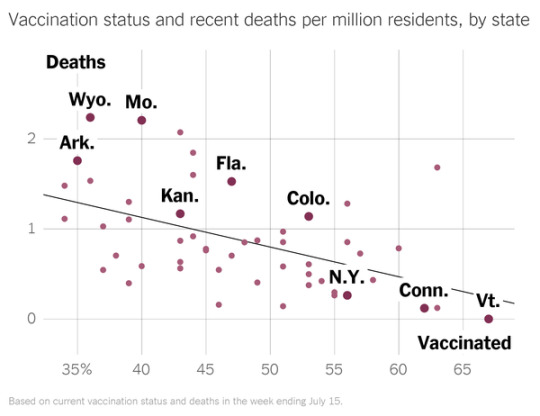
(For more detailed state-level charts, see this piece by my colleagues Lauren Leatherby and Amy Schoenfeld Walker. The same pattern is evident at the county level, as the health policy expert Charles Gaba has been explaining on Twitter.)
Nationwide, more than 99 percent of recent deaths have occurred among unvaccinated people, and more than 97 percent of recent hospitalizations have occurred among the unvaccinated, according to the C.D.C. “Look,” President Biden said on Friday, “the only pandemic we have is among the unvaccinated.”
The three themes
What helps move people from vaccine skeptical to vaccinated? The Kaiser polls point to three main themes.
(The themes apply to both the 23 percent of people who said they would not get a shot, as well as to the 28 percent who described their attitude in January as “wait and see.” About half of the “wait and see” group has since gotten a shot.)
1. Seeing that millions of other Americans have been safely vaccinated.
Consider these quotes from Kaiser’s interviews:
“It was clearly safe. No one was dying.” — a 32-year-old white Republican man in South Carolina
“I went to visit my family members in another state and everyone there had been vaccinated with no problems.” — a 63-year-old Black independent man in Texas
“Almost all of my friends were vaccinated with no side effects.” — a 64-year-old Black Democratic woman in Tennessee
This suggests that emphasizing the safety of the vaccines — rather than just the danger of Covid, as many experts (and this newsletter) typically do — may help persuade more people to get a shot.
A poll of vaccine skeptics by Echelon Insights, a Republican firm, points to a similar conclusion. One of the most persuasive messages, the skeptics said, was hearing that people have been getting the vaccine for months and it is “working very well without any major issues.”
2. Hearing pro-vaccine messages from doctors, friends and relatives.
For many people who got vaccinated, messages from politicians, national experts and the mass media were persuasive. But many other Americans — especially those without a college degree — don’t trust mainstream institutions. For them, hearing directly from people they know can have a bigger impact.
“Hearing from experts,” as Mollyann Brodie, who oversees the Kaiser polls, told me, “isn’t the same as watching those around you or in your house actually go through the vaccination process.”
Here are more Kaiser interviews:
“My daughter is a doctor and she got vaccinated, which was reassuring that it was OK to get vaccinated.” — a 64-year-old Asian Democratic woman in Texas
“Friends and family talked me into it, as did my place of employment.” — a 28-year-old white independent man in Virginia
“My husband bugged me to get it and I gave in.” — a 42-year-old white Republican woman in Indiana
“I was told by my doctor that she strongly recommend I get the vaccine because I have diabetes.” — a 47-year-old white Republican woman in Florida
These comments suggest that continued grass-roots campaigns may have a bigger effect at this stage than public-service ad campaigns. The one exception to that may be prominent figures from groups that still have higher vaccine skepticism, like Republican politicians and Black community leaders.
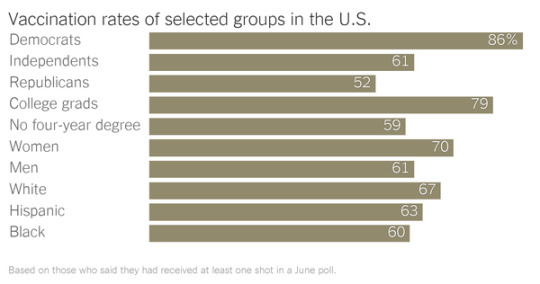
3. Learning that not being vaccinated will prevent people from doing some things.
There is now a roiling debate over vaccine mandates, with some hospitals, colleges, cruise-ship companies and others implementing them — and some state legislators trying to ban mandates. The Kaiser poll suggests that these requirements can influence a meaningful number of skeptics to get shots, sometimes just for logistical reasons.
“Hearing that the travel quarantine restrictions would be lifted for those people that are vaccinated was a major reason for my change of thought.” — a 43-year-old Black Democratic man in Virginia
“To see events or visit some restaurants, it was easier to be vaccinated.” — a 39-year-old white independent man in New Jersey
“Bahamas trip required a COVID shot.” — a 43-year-old Hispanic independent man in Pennsylvania
#point being: if there are people you know in your life who have not gotten vaccinated. BE RELENTLESS#this is the most crucial outreach we can be doing#covid#covid-19
50 notes
·
View notes
Text
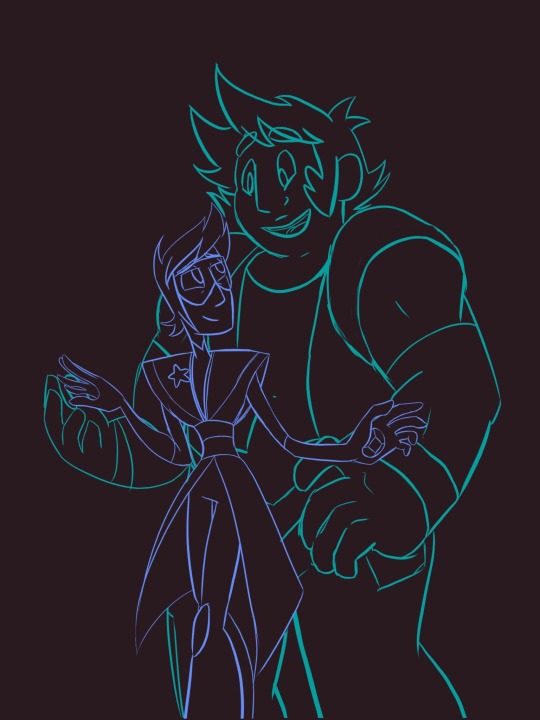

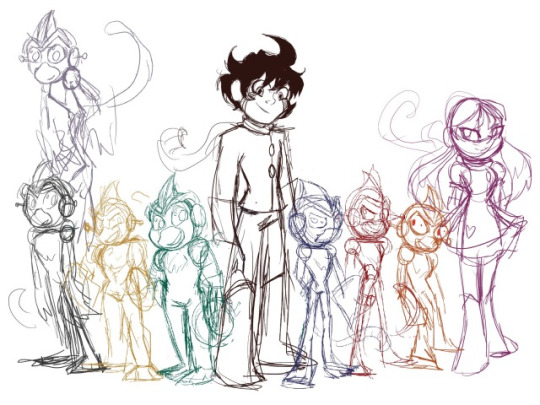


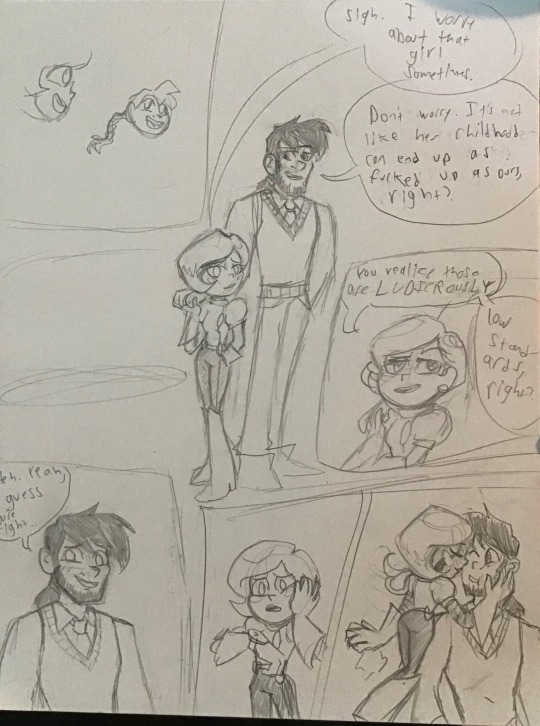

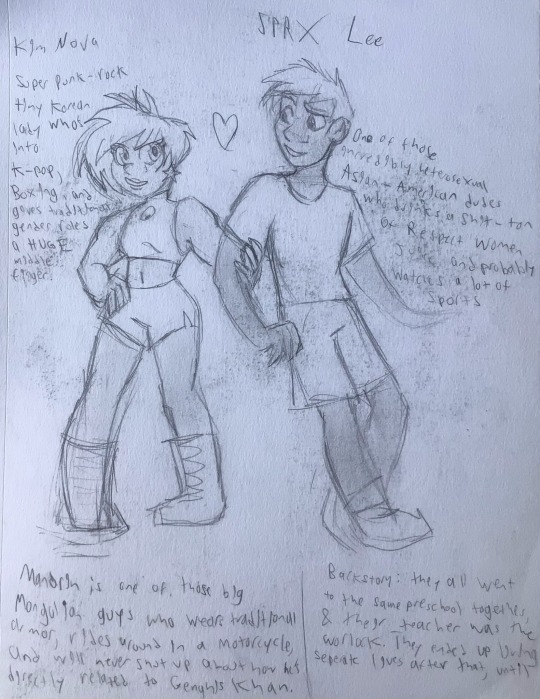

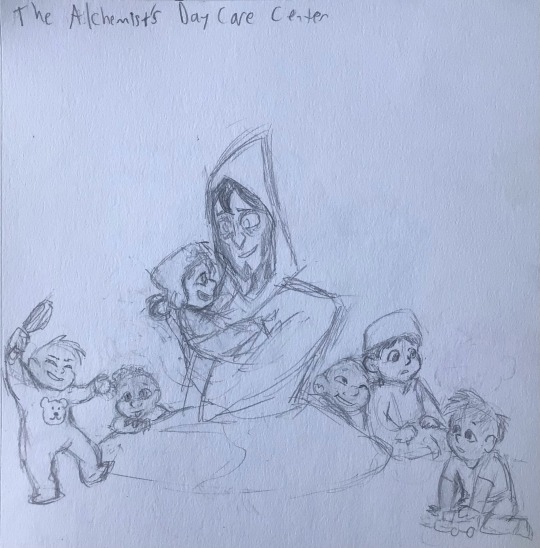
This time on Messy Doodles Monday: Monkeys! (... yes, I am aware that it is technically Tuesday. Don’t judge me)
Most of these are really old doodles that I kept telling myself that I would eventually turn into finished illustrations, but... cest la vie.
We got some Gibotto from @jigokuhana ‘s sgemmthfg AU
Some more Gibotto from @musekicker ‘s Evil!Gibson AU
Some group monkeys
Some Jinmay Aging concepts (including never-before-seen Mom!Jinmay and her husband Chiro)
And my own personal Human!Monkeys AU! In this au, the team all went to an international preschool run by the Alchemist, which was shut down when he went crazy and gave all his students cybernetic implants. The kids were separated by their parents after that, and they were all raised back in their home countries. Antauri Naidoo is a South African man of Indian descent, who spent his teens in the Himalayas. Mandrin is a Mongolian man who grew up to be a warrior, one of those guys who rides a motorcycle in traditional armor (and is incredibly proud to be a direct descendant of Genghis Khan). Doctor Haleef Abduhl Gibson is an Islamic man who studied abroad in London, married an English Collegiate to keep his green card, and then kept the surname after their amicable divorce. Otto Ornellas is a Portuguese mechanic who helps his family run a restaurant in America. Kim Nova is a punk-rock Korean lady who’s into K-Pop and Boxing, and rebels against traditional gender norms (though she does still partake in the more spiritual/grounded aspects of her home culture). Sprx Lee is an American-Asian dude who is culturally more American than Asian, who probably grew up in like Kansas or Ohio or someplace rural like that - he earned his flying license at 14 and flies planes with his uncle.
After some sort of global event, like an alien invasion or something, they discovered the previously dormant cybernetic abilities, and found eachother to save the world! After that, they all fought as a team for many years, traveling the world to hone their abilities and keep the Earth safe from danger.
But one day, after a catastrophic event that almost went sideways, Mandrin started gaining more political aspirations. It wasn’t too bad at first - the team in fact encouraged their leader, proud of him for his attempts to use policies to keep people safe - until word got out that he was using his powers to threaten his political opponents. That he had plans for global domination, reasoning to himself that “the world must be United in order to protect itself from extraterrestrial threats!” That he would do ANYTHING to protect the planet he called his home. Even if it meant hurting his friends.
The team ended up having to arrest him for breaking the Geneva Convention.
They kept protecting the Earth, and eventually there was a child named Chiro. Not one of their kids, mind you, but a latchkey kid from a wealthy family who hung around them. Eventually the team sort of... unofficially adopted this kid. Teaching him how to defend himself, sharing their cultures with him, taking care of him. One day they met with the kid’s wealthy and neglectful parents, and they all decided to make the team Chiro’s official guardians. So Chiro grew up with the Hyperforce, and basically the events of the rest of the show happen, but on Earth and with humans instead of monkeys.
#srmthfg#super robot monkey team hyperforce go#gibotto#spova#chinmay#gibson#otto#chiro#antauri#nova#sprx77#mandarin#mantauri#?#jinmay#the alchemist#sgemmthfg#gem au#steven universe#messy mooney doodles#messy doodles monday#looney mooney rants#mooneyart#looney mooney art#artists on tumblr#long post
95 notes
·
View notes
Text
Thailand: Southeast Asia’s unexpected epicentre of K-pop
How Thailand contributes to South Korea, and how South Korea gives back in return
i. Intro
youtube
Video: Clip from Thai entertainment show hosted by Moddam Kachapa. (Source: YouTube)
On September 11, 2021, Thai MC Moddam Kachapa talked about the solo debut success of Blackpink’s Lisa.
“This is what we call world class, truly world class, it’s finally happened to our country.”
Lisa (real name Lalisa Manoban), a K-pop idol who was born and raised in Thailand, got her start under YG Entertainment in 2016, as a member of girl group Blackpink. The group itself has achieved worldwide success, even being credited by South Korean president Moon Jae-In for spreading K-pop content across the globe. Lisa is the only member of the group who is not Korean, and the third to break out into solo endeavours.
Her debut single album Lalisa was considered a huge success. With 736,000 copies sold in South Korea within the first week, it broke the all-time record for most sales in a single week for any release by a female musician — leaving her more than worthy of a celebration.
But in acknowledging Lisa’s success, Kachapa discredited the success of other Thai K-pop idols in the industry: namely, 2PM’s Nichkhun and GOT7’s BamBam.
“We’ve never seen a (Thai) superstar go this far - back then we had Nichkhun, but he wasn’t successful to this degree. We also have BamBam, but he too didn’t manage to get this far.”

Photo: Screenshots of netizens’ tweets regarding Kachapa’s statements. (Source: Twitter)
His statements struck a chord with long-time fans of both artists, who felt there was no need to bring them down in order to praise Lisa. Many even acknowledged that the three are friends, and did not see one another as competition.

Photo: BamBam, Nichkhun and Lisa with one another. (Source: various)
This incident proves one thing – Thai fans of K-pop are proud of all the success their own citizens have achieved, and actively acknowledge that debuting in the K-pop industry is an achievement to laud over. It reflects the level of respect Thai netizens have for K-pop, revealing just how popular K-pop is in Thailand.
ii. The import of Thai idols
A survey conducted with 500 Thai citizens in 2019 revealed that 45.6 percent of respondents considered K-pop to be very popular in the nation, with an additional 27.2 percent considering it to be quite popular. The Korean Wave, specifically the rise of K-pop, has been present in Thailand for more than decade now.
The import of talents like Nichkhun, BamBam and Lisa are both a result of this rise, and also help to maintain this popularity. The respect they are treated with in their home country is nearly unparalleled.
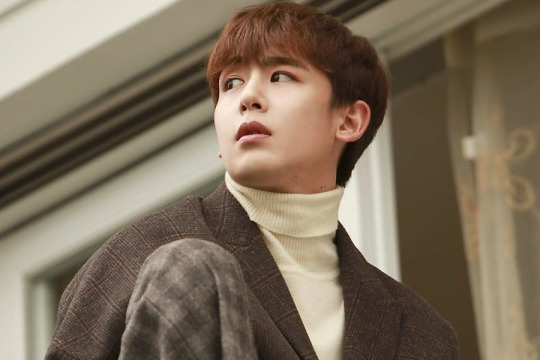
Nichkhun (2PM)
In 2005, when he was just 17, Nichkhun was scouted by JYPE Entertainment representatives while at the Los Angeles Korean Music Festival with some friends. He admitted to having no knowledge of Korean culture, and did not understand why he was scouted.
“I didn’t know any singers, I didn’t know what JYP was and when I was scouted, I was really skeptical about it because I don’t really speak Korean, I didn’t know anybody there.”
The Los Angeles Korean Music Festival (now known as the Korea Times Music Festival) was launched in 2003 to give Korean-Americans living in Southern California a taste of “home”. The festival grew increasingly popular among non-Koreans, due to the widespread recognition of Korean culture in the United States, and in 2013, 95 per cent of tickets were purchased by non-Koreans.
youtube
Video: 2PM performing at the 2014 Los Angeles Korean Music Festival. (Source: YouTube)
The booming presence of the Korean community in Southern California and the rise of Hallyu in the United States were both factors that contributed to Nichkhun’s recruitment into JYPE. His debut as a member of 2PM in 2008 cemented his status as the world’s first K-pop idol from Thailand.
He is incredibly popular in his home country, earning the nickname “Thai Prince” for his good looks, wealth and talent. He also acknowledges that as a foreign K-pop idol, he helps to globalise K-pop, and spread awareness of it beyond just South Korea.
I think I’m the international bridge that connects the group to places outside Korea. If the group were only Korean members, the reach would be very Korean. But because I’m there, I make the group a little more international.

BamBam (GOT7)
BamBam (born Kunpimook Bhuwakul), is a member of GOT7, formerly under JYP Entertainment. Growing up in Thailand, his interest in Korean culture was primarily because his mother was a huge fan of singer Rain. The two of them even attended some Rain concerts together in Thailand, a testament to the singer’s popularity in the region.
BamBam actively took part in K-pop competitions growing up in Thailand, like a Rain cover dance competition, and the Thailand LG Entertainer Competition (which 2PM’s Nichkhun and Blackpink’s Lisa were coincidentally both present at).
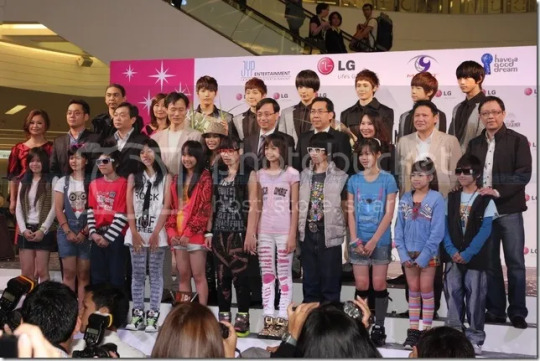
Photo: BamBam, Nichkhun and Lisa at the Thailand LG Entertainer Competition. (Source: YouTube)
At 13, BamBam passed the JYP World Tour Audition in Thailand and subsequently moved to South Korea to become a JYPE trainee. Debuting with GOT7 in 2014, his popularity in Thailand soared and BamBam went on to receive the nickname “Thai Prince”, just like his predecessor Nichkhun.
He endorses many brands in Thailand, including mobile network operator AIS, Yamaha, and Vivo.
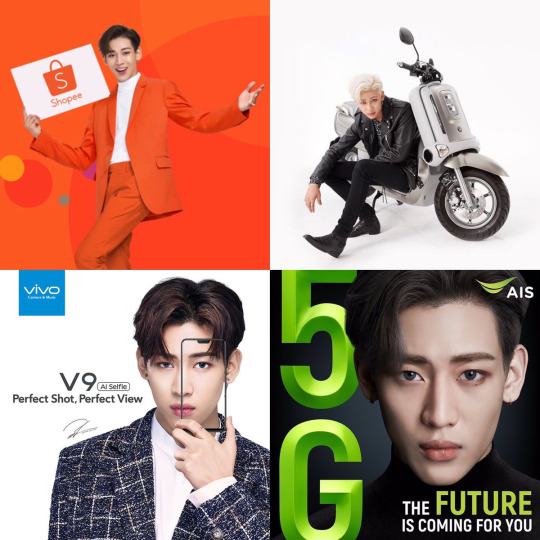
“Someone had called me “nation’s treasure” before. I felt really good when I heard it. I want Thai people to be proud of me. I am proud of being Thai. I always say it wherever I go. We’re K-pop idols or whatever, we’re still Thai.”
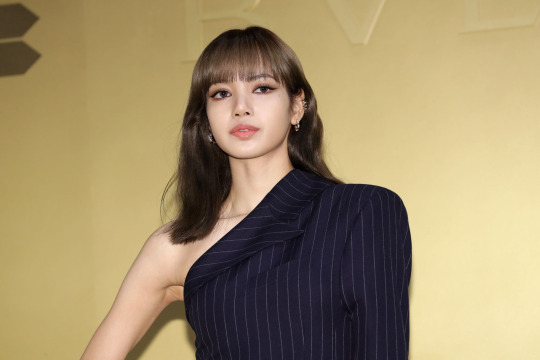
Lisa (Blackpink)
Lisa’s story of how she debuted is similar to that of BamBam’s. In 2010, she attended an open audition held by YG Entertainment in Thailand, and was the only winner out of approximately 3000 contestants. Moving to South Korea at the mere age of 13, she proceeded to become YG’s first non-Korean trainee.
Since Blackpink’s debut in 2016, the group has achieved constant success. Lisa’s fame is nearly unparalleled – she is the most followed K-pop idol on Instagram, boasting 61.9 million followers (as of October 2021).
The star, who like Nichkhun and BamBam is highly respected in Thailand, made sure to boast her Thai roots in her debut single.
"I wanted my album to give a Thai feel as its gem, and YG's producer, Teddy, arranged the lead track in the way I expected. I also sported Thai outfits in its music video and made traditional Thai dance movements.”
The ever growing globalisation of K-pop, like Korean music festivals and idol auditions held in other countries, contribute to the growing pool of non-Korean K-pop idols. K-pop is becoming increasingly accessible, not just for fans, but for those aspiring to join the industry.
Other Thai idols have sprouted in the K-pop industry since, like NCT’s Ten, CLC’s Sorn and G-Idle’s Minnie. All of them contribute to growing cultural relations between Thailand and South Korea, as South Korean President Moon Jae-In said himself.
“ In particular, the peoples of our two countries are curious about each other and share a mutual affection. A number of talented young Thais are making a name for themselves on the world stage as members of K-pop acts, including Nichkhun of 2PM and Lisa of Blackpink.”
iii. Getting what you give
Where K-pop has benefitted from Thailand, Thailand has benefitted from K-pop.
All of the “Big 3” labels – JYP, YG and SM – have expanded their businesses to Thailand: JYP launched JYPE Thailand in 2010, its official Southeast Asian branch. The following year, SM launched a joint venture called SM True with Thailand’s The Visions Group. And just this year, YGMM was launched as a joint venture between YG and Thailand’s GMM Grammy.
Korean music festivals and conventions are also commonplace in Thailand. In 2011, to celebrate its 50th anniversary, South Korea’s Munhwa Broadcasting Corporation (MBC) held the MBC Korean Music Wave in Bangkok. It featured the biggest groups of the time, like TVXQ, Miss A, Girls’ Generation and SG Wannabe, and was hosted by 2PM’s Nichkhun, alongside Yuri and Tiffany from Girls’ Generation. MBC Korean Music Wave returned to Thailand two more times, and its last iteration received a turnout of 20,000 fans.

Photo: Tiffany, Nichkhun, and Yuri at MBC Korean Music Wave in Bangkok 2011. (Source: Soompi)
More recently, in 2018 and 2019, Thailand became the only Southeast Asian country to host KCON. The convention, held to celebrate all forms of Korean culture, originally began in 2012, in the United States, and has since expanded to eight countries. Thailand’s KCON was hosted both times by 2PM’s Nichkhun, and saw performances from artists like Stray Kids, Iz*One and GOT7.

Photo: GOT7 at KCON 2018, including BamBam (3rd from right). (Source: Tofupop Radio)
Now, the COVID-19 pandemic might have halted K-pop concerts and conventions in Thailand for the time being, but the craze shows no signs of stopping. The K-pop phenomenon has trickled its way down to Thailand’s grassroots, benefitting blue collar workers like tuktuk drivers and roadside hawkers.

Photo: Thailand’s popular tuktuks are now adorned with K-pop idol advertisements. (Source: Reuters)
The drivers of Thailand’s distinctive tuktuks have been hit financially by the pandemic, with most of their income normally coming from excited tourists. According to Reuters, avid K-pop fans have been turning to these tuktuks as a way to advertise their favourite idols. As part of a larger anti-government protest, teenagers stopped paying for their K-pop idols to be advertised on public transport, and instead mobilised tuktuks to celebrate birthdays and album launches.
Samran and many others now drive their empty tuk tuks around Bangkok with a banner of a different K-pop sensation each month, stopping for young Thai fans to take pictures and use their service, often with tips.
Similarly, meatball vendors in Lisa’s hometown of Buriram in Thailand have seen a rise in sales of up to 1000 per cent since an unexpected shoutout from her. In an interview on popular Thai talkshow The Woody Show, Lisa mentioned missing the meatballs sold near the train station in her hometown.
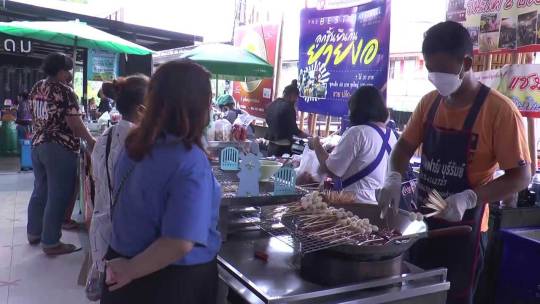
Photo: Meatballs being sold in Lisa’s hometown in Thailand. (Source: Bangkok Post)
“People buy and eat them right there at Buriram train station. They’re really popular. The highlight is the sauce found only in Buriram.”
Business had struggled for these vendors as a result of the pandemic, with many people afraid of eating out. Some vendors even had to shut down stalls.
"Now some shops have about 2,000 orders a day. This is unprecedented and business is even better than pre-Covid 19," said Bordin Ruengsuksriwong, the provincial Tourism Industry Council president.
It is no doubt that when pandemic restrictions ease up, more Thais will find themselves flocking to South Korea to follow in the footsteps of Nichkhun, BamBam and Lisa, while K-pop groups will be marking Thailand down in their tour dates.
3 notes
·
View notes